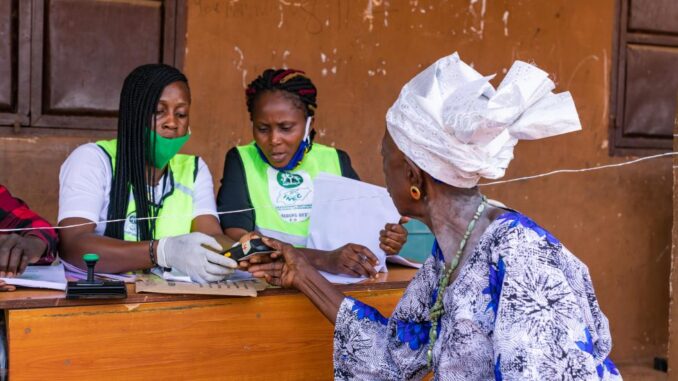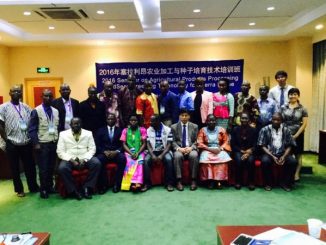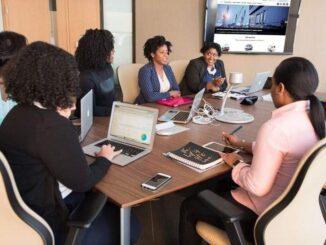

Nigerians might be excused for having election fatigue after going to the polls several times in 2023. In February, voters chose a new president and members of the national legislature, before 28 states voted for governors in March. In April, supplementary elections were held to cover some elections that were not conclusive during the February and March polls, while in November voters in three states went to the polls to elect state governors.
In addition to political exhaustion, a further challenge in learning the lessons of 2023 and putting them into action is that different stakeholders have traded blame and mostly tried to deflect from their own failings and shortcomings rather than proposing constructive solution. Unpacking the lessons from the series of elections is therefore a pressing and important task, which is necessary to provide a stronger foundation for the country’s waning democracy.
Identity shapes voting, but doesn’t guarantee turn out
A major theme of the elections last year was the role played by communal identities. Former President Muhammadu Buhari had been accused of a very nepotistic government and this shaped campaigns as politicians rallied their bases through fears of being marginalised. This was especially prominent during the presidential elections, where Peter Obi, a south-easterner was able to sweep the vote in all five states of his home zone. Bola Tinubu, from the south-west won the vote in four of the six states in his zone, while Atiku Abubakar won in five of the six in his north-east zone.
Religion has always been a key aspect of the Nigerian political society, but 2023 was the year that it shed its non-partisan toga and embraced its role in shaping electoral outcomes. Bola Tinubu, nominee of the ruling All Progressives Congress (APC) disregarded ‘convention’ and named a fellow Muslim running mate, in a clear acknowledgment of the need to attract the mostly Muslim north. Atiku Abubakar, a Muslim northerner who was the presidential nominee of the opposition People’s Democratic Party (PDP) was able to flip Gombe, Katsina, Kebbi, Sokoto and Yobe – predominantly Muslim states in the north that still voted for governors from the ruling party. But this spoke to enclaves within certain states as well. Muhammad Yahaya, a Muslim in Taraba was able to attract support from minority Muslims in the state and finished second in a close contest. Similarly, David Ombugadu, a Christian in Nasarawa was able to gain strong support in the Christian hubs within the state and won a tribunal sitting to overturn his defeat, before ultimately losing at the supreme court.
Sharing a candidate’s identity was not enough to mobilise voters to the polls. Voter turnout in presidential elections has consistently dropped over the last 20 years, and the recent elections were the lowest at 26.7%, and shows that politicians need more to appeal to the apathetic majority.
Networks made the difference
February’s presidential elections saw the two largest states in the country go to third party candidates, with Rabiu Kwankwaso winning Kano and Peter Obi claiming Lagos. Obi would win 11 states and the capital in a strong showing that many argue showed his political weight in a field alongside seasoned veterans. In an election of fine margins, it leaves many to wonder what could have been if they had joined forces as was mooted during the beginning of the campaign.
Governorship elections also showed that this appeal did not go down-ballot and exposes the limitations of third parties in the country. Both men stumped for their party’s candidates, but were only able to win a state governorship election – Abia for Obi’s Labour and Kano for Kwankwaso’s New Nigeria People’s Party (NNPP). Labour further disappointed with second places in Enugu and Lagos, which Obi won, and third in other states that he carried weeks earlier. In November, Labour handily lost Imo, which it had won in the presidential election with 77% of the vote.
This shows that personalities still trump parties in Nigerian politics. Tinubu and Atiku, arguably the two most connected politicians in the country, leveraged strong networks to ensure their parties were competitive, while Obi and Kwankwaso saw their limitations. The truth remains that these “godfathers and allies” help to get out the vote and align state structures in elections that often don’t see much vote splitting. Perhaps even more worryingly for future races, it is even likely that the few gains recorded by third parties might be eroded by the possible gale of defections that the third parties will face ahead of the next elections from incumbents desperate to remain in office.
The voting architecture is outdated
Nigeria’s 2023 elections were governed by a new electoral act that was meant to make the Independent National Electoral Commission (INEC) truly independent. A major milestone was the introduction of a new authentication system and the uploading of results virtually. Yet, despite the optimism, there were significant glitches that marred its use and led to mistrust during the voting process.
INEC remains too big and too burdened. It performs too many functions, which see some such as regulating the conduct of political parties and actively punishing electoral offenders, easily neglected. Other major actors in the voting space include security agencies and their federal nature means that there is likely deference to party at the centre – leading to the prospect of overtly militarised polls when opposition groups or states push back. Regrettably, both groups have failed to effectively curb the rise of voter inducement in the election landscape and the role that harsh economic realities play in Nigeria’s politics.
In April, during rerun elections, a resident electoral commissioner violated laid-down guidelines by rushing to announce a candidate as winner of the election. But the political reality comes down to accountability – the chair, commissioners and senior staff are appointed by the president and approved by the senate, which makes their appointments political in nature. The current chair is due to step down in 2025 which means his successor, if named from outside the commission like his predecessors, will likely have little to no experience before overseeing Africa’s largest democratic exercise in 2027.
The nature of Nigeria’s politics is such that there are off-cycle governorship elections every year. Edo and Ondo States will elect successors to term-limited governors this year in the next test for the commission. These elections provide more opportunities for Nigerians to carry out much needed reform ahead of future elections. The opportunity cost of ignoring these issues, of an increasingly apathetic population and reduced civic engagement, is one that the country cannot afford to pay.
Afolabi Adekaiyaoja (@adekaiyaoja) is a researcher and political analyst from Nigeria who writes on democracy, elections, geopolitics and institutions in West Africa.







Leave a Reply